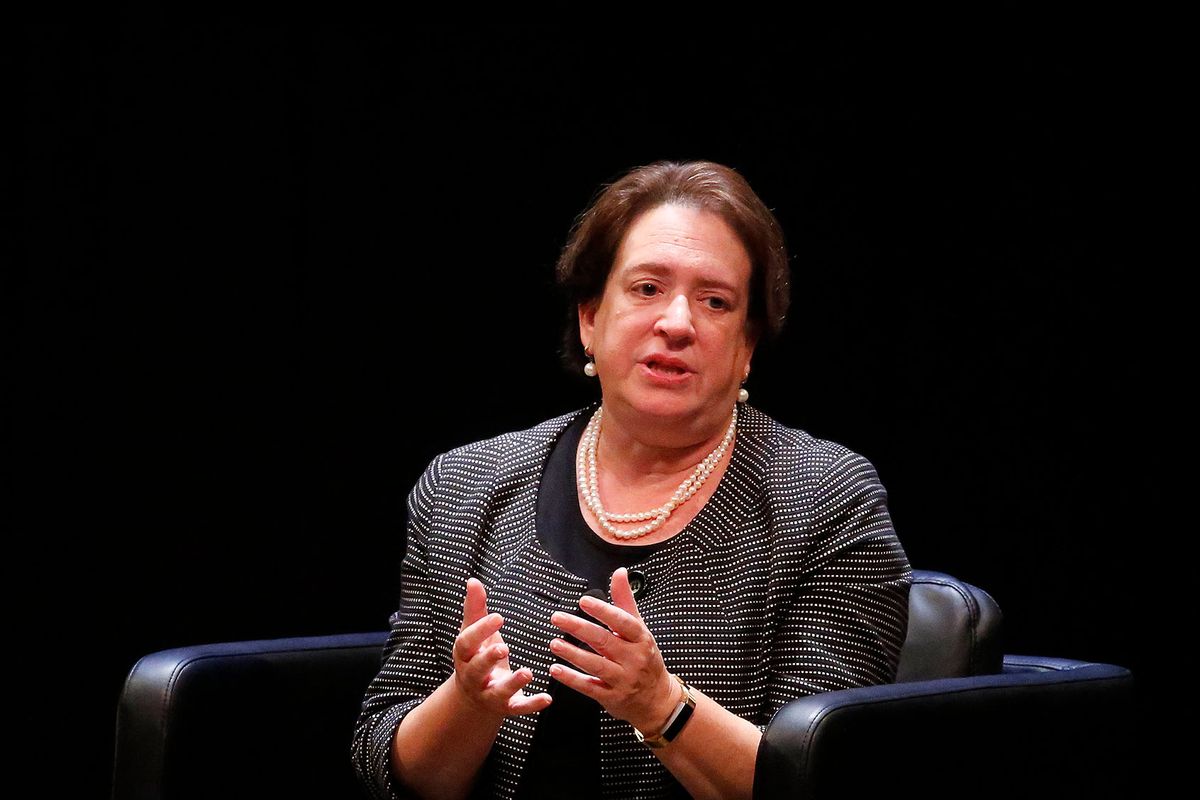The Supreme Court on Friday struck down President Joe Biden's student debt relief plan, which would cancel over $400 billion in student loan debt, on the grounds that the secretary of education's enactment of the program oversteps the bounds of the Biden administration's authority.
The court ruled that Biden's program presents an executive overreach because of its wide scope — endeavoring to release 43 million student loan borrowers from a total of $430 billion of debt — which would alter large portions of the nation's economy without undertaking the necessary legislative procedures in Congress. The justices voted 6-3 in favor of the suing states after unanimously voting that the private plaintiffs who also challenged the relief plan did not have the standing to do so.
The case hinged on the 2003 HEROES Act, which allows the secretary of education to "waive or modify any statutory or regulatory provision" regarding student financial aid under Title IV of the Education Act as they deem it necessary in times of war or national emergency.
The court determined that Biden's student debt relief plan, enacted in 2022 as a response to the widespread financial hardship caused by the COVID-19 pandemic departed too far from the "extremely modest and narrow" scope of previous applications of the Act, citing a 2003 waiver easing a requirement for borrowers seeking loan forgiveness through public service provisions as an example.
In the majority opinion, Chief Justice John Roberts defended the decision, saying that it aligns with the court's longtime precedent requiring Congress' input before secretaries can "unilaterally alter large sections of the American economy."
"The dissent is correct that this is a case about one branch of government arrogating to itself power belonging to another," he wrote, addressing the dissent's accusation that the court is overstepping its authority in the decision. "But it is the Executive seizing the power of the Legislature. The Secretary's assertion of administrative authority has 'conveniently enabled [him] to enact a program' that Congress has chosen not to enact itself."
Joined by fellow liberal Justices Ketanji Brown-Jackson and Sonia Sotomayor, Justice Elena Kagan delivered the dissenting opinion, arguing that "the Court, by deciding this case, exercises authority it does not have. It violates the Constitution."
"In every respect, the court today exceeds its proper, limited role in our nation's governance," the dissent said.
The six plaintiffs in the case — Arkansas, Iowa, Kansas, Missouri, Nebraska and South Carolina — "oppose the Secretary's loan cancellation plan on varied policy and legal grounds," Kagan wrote. "But as everyone agrees, those objections are just general grievances; they do not show the particularized injury needed to bring suit.
"And the States have no straightforward way of making that showing—of explaining how they are harmed by a plan that reduces individual borrowers' federal student-loan debt," she continued. "So the States have thrown no fewer than four different theories of injury against the wall, hoping that a court anxious to get to the merits will say that one of them sticks.
"The most that can be said of the theory the majority selects, proffered solely by Missouri, is that it is less risible than the others. It still contravenes a bedrock principle of standing law—that a plaintiff cannot ride on someone else's injury," she said.
Want a daily wrap-up of all the news and commentary Salon has to offer? Subscribe to our morning newsletter, Crash Course.
Missouri's claim of injury in the case, which the court's majority accepted and Kagan derided in her opinion, centers around the Missouri Higher Education Loan Authority, a state-created corporation that bills and collects payments on loans for the federal government.
While MOHELA ordinarily receives an administrative fee for every loan it services, Biden's plan, in canceling loans, would swipe whatever fee MOHELA would have received from handling the loan, effectively costing them money.
The majority concluded that, because the corporation is a "public instrumentality" and part of its government, the state of Missouri will be harmed by the student debt relief plan. In her opinion, however, Kagan argues that the state of Missouri does not have the standing to sue because the legal theory points to the corporation as the "proper plaintiff."
Biden's debt relief plan strove to forgive up to $10,000 for borrowers with eligible loans who make less than $125,000 and wipe up to $20,000 of debt from qualified Pell Grant recipients.
A source from the White House told Reuters, that, in light of the Supreme Court's decision, President Biden will announce new actions to protect student loan borrowers.



Shares